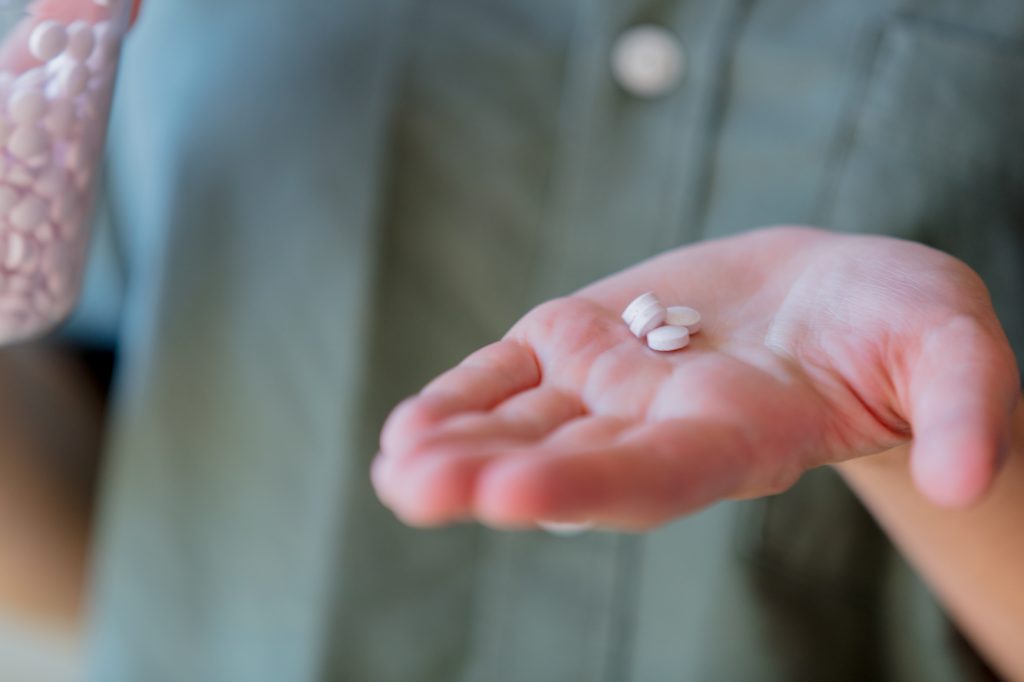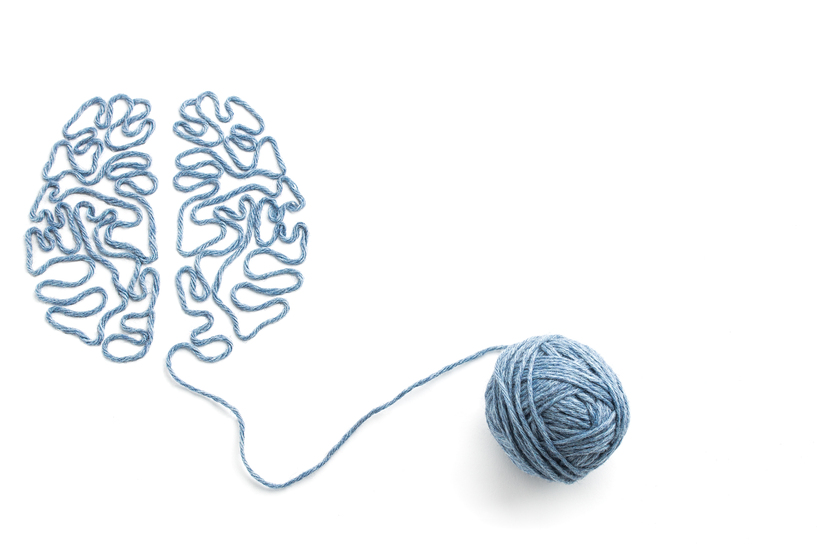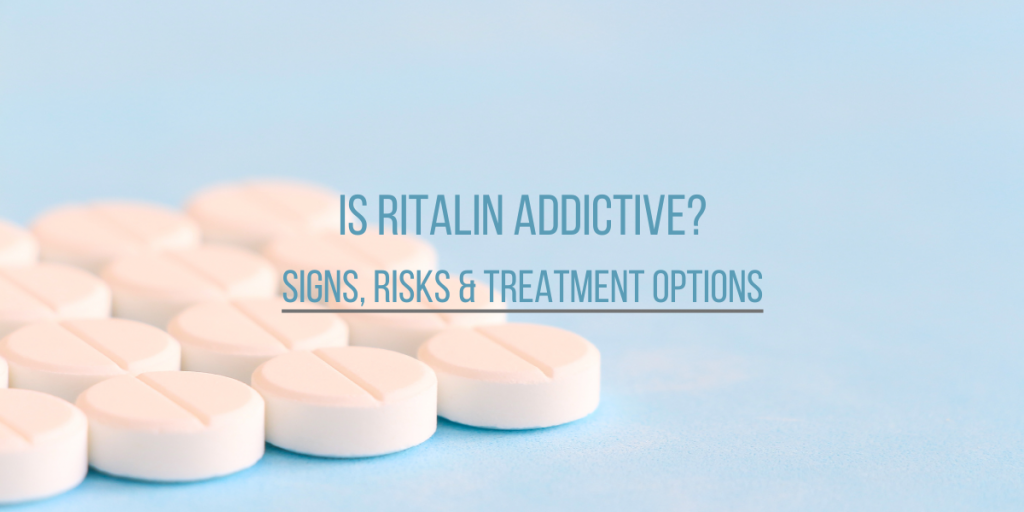Ritalin, also known by its generic name methylphenidate, is a commonly prescribed medication used to treat attention deficit hyperactivity disorder (ADHD) in both children and adults. While it has proven to be effective in managing ADHD symptoms, there has been some concern about its potential for addiction. In this article, we will examine the uses, effects, and possible addiction risks associated with Ritalin and addiction treatment options.
Is Ritalin Addictive?
To answer the question, while Ritalin is an effective medication for managing ADHD symptoms, there is a potential for addiction when misused or taken in higher doses than recommended. According to a study published in the Journal of Clinical Psychiatry in 2020, non-medical use of Ritalin among college students was approximately 5%, highlighting the potential for misuse.
Understanding Ritalin: Its Uses and Benefits
The Medical Purpose of Ritalin

Ritalin belongs to a class of drugs called stimulants. It works by increasing the levels of certain chemicals in the brain, particularly dopamine and norepinephrine. By doing so, it helps to improve focus, attention, and impulse control in individuals with ADHD.
ADHD, or Attention Deficit Hyperactivity Disorder, is a neurodevelopmental disorder that affects both children and adults. It is characterized by symptoms such as inattention, hyperactivity, and impulsivity. These symptoms can significantly impact an individual’s daily life, affecting their academic performance, work productivity, and social relationships.
It is important to note that Ritalin should only be used under the supervision and guidance of a healthcare professional. They will prescribe the appropriate dosage based on the individual’s needs and monitor the effects of the medication.
When Ritalin is taken as prescribed, it can effectively manage the symptoms of ADHD and improve the quality of life for individuals with the disorder. However, it is crucial to remember that medication alone is not a cure for ADHD. It is often used as part of a comprehensive treatment plan that includes therapy and other non-medication interventions.
The Positive Effects of Ritalin
For individuals with ADHD, Ritalin can have significant benefits. It can help improve their ability to concentrate, stay organized, and complete tasks. It may also reduce hyperactivity and impulsivity, allowing individuals to better manage their behavior.
Research has shown that Ritalin can enhance cognitive functioning in individuals with ADHD. It can improve working memory, which is essential for tasks that require holding and manipulating information in the mind. This improvement in working memory can lead to better academic performance and increased productivity in various areas of life.
Ritalin is often used as part of a comprehensive treatment plan, which may include therapy and other non-medication interventions. The combination of medication and therapy can be highly effective in managing ADHD symptoms and improving overall functioning.
It is important to note that Ritalin may not be suitable for everyone with ADHD. Some individuals may experience side effects or have underlying medical conditions that contraindicate its use. Therefore, it is crucial to consult with a healthcare professional to determine the most appropriate treatment approach for each individual.
In conclusion, Ritalin is a medication that belongs to the stimulant class and is commonly prescribed for individuals with ADHD. It works by increasing the levels of certain chemicals in the brain, improving focus, attention, and impulse control. When used as part of a comprehensive treatment plan, Ritalin can have positive effects on individuals with ADHD, helping them manage their symptoms and improve their overall functioning.
The Science Behind Ritalin Addiction
Ritalin, also known as methylphenidate, is a commonly prescribed medication for the treatment of attention deficit hyperactivity disorder (ADHD). It belongs to a class of drugs called stimulants, which work by increasing the levels of certain chemicals in the brain that help with focus and attention.
How Ritalin Affects the Brain

When taken as prescribed, Ritalin helps restore balance to the neurotransmitters in the brain. It specifically targets the dopamine and norepinephrine systems, which play a crucial role in regulating attention and impulse control.
However, when misused or taken in higher doses than recommended, Ritalin can produce a euphoric effect similar to that of other stimulant drugs. This is because it increases dopamine levels in the brain, which can create a sense of pleasure and reward.
The surge in dopamine is what makes Ritalin potentially addictive, as the brain starts associating the drug with positive feelings. This association can lead to a desire for more of the drug, even when it is no longer medically necessary.
The Role of Dopamine in Ritalin Use
Dopamine is a neurotransmitter responsible for regulating pleasure, reward, and motivation. It is involved in the brain’s reward pathway, which reinforces behaviors that are pleasurable or rewarding.
When Ritalin is used, it increases dopamine levels, leading to a heightened sense of well-being. This can create a reinforcement loop, where individuals feel compelled to continue using the drug to maintain those positive feelings.
Over time, the brain may become dependent on Ritalin to produce dopamine, leading to cravings and addictive behaviors. This dependence can make it difficult for individuals to stop using the drug, even when they are aware of the negative consequences.
It is important to note that not everyone who takes Ritalin as prescribed will develop an addiction. The risk of addiction is higher in individuals who misuse the drug, take higher doses than recommended, or have a history of substance abuse.
Furthermore, Ritalin addiction can have serious consequences on an individual’s physical and mental health. It can lead to increased heart rate, elevated blood pressure, insomnia, anxiety, and even psychosis in some cases.
Seeking professional help is crucial for individuals struggling with Ritalin addiction. Treatment options may include therapy, support groups, and medication-assisted treatment to manage withdrawal symptoms and cravings.
Overall, understanding the science behind Ritalin addiction can help raise awareness about the risks associated with its misuse and promote informed decision-making when it comes to medication use.
The Potential for Ritalin Addiction
Ritalin, also known as methylphenidate, is a commonly prescribed medication used to manage symptoms of Attention Deficit Hyperactivity Disorder (ADHD). It is a central nervous system stimulant that works by increasing the levels of certain chemicals in the brain that help with focus and attention. While Ritalin can be a valuable tool in managing ADHD symptoms, it is essential to be aware of the signs of dependence or addiction.
3 Signs of Ritalin Dependence
Recognizing the signs of Ritalin dependence is crucial in order to address the issue promptly and seek appropriate help. Some common signs of Ritalin dependence include:
- Increased tolerance to the medication: Over time, individuals may find that they need higher doses of Ritalin to achieve the desired effects. This can be a red flag indicating the development of dependence.
- Withdrawal symptoms: When Ritalin is stopped or reduced abruptly, individuals may experience withdrawal symptoms. These symptoms can range from mild to severe and may include fatigue, irritability, depression, and difficulty concentrating.
- Cravings and loss of control: Dependence on Ritalin can lead to intense cravings for the medication, making it challenging to control its use. Individuals may find themselves constantly thinking about Ritalin and engaging in behaviors to obtain more of the drug.
It is important to note that experiencing one or more of these signs does not necessarily mean someone is addicted to Ritalin. However, if these signs persist and interfere with daily functioning, it is crucial to seek professional help to determine the best course of action.
The Risk Factors for Developing an Addiction
While not everyone who uses Ritalin will develop an addiction, certain risk factors can increase the likelihood. Understanding these risk factors can help individuals make informed decisions about their medication use. Some common risk factors for developing a Ritalin addiction include:
- Personal or family history of substance abuse: Individuals with a personal or family history of substance abuse may be more susceptible to developing an addiction to Ritalin. Genetic and environmental factors can play a role in increasing the risk.
- Misusing or taking higher doses of Ritalin: Taking Ritalin in higher doses than prescribed or using it in a way other than intended can increase the risk of addiction. It is essential to follow the prescribed dosage and administration instructions provided by a healthcare professional.
- Using Ritalin for non-medical purposes: Some individuals may misuse Ritalin to enhance focus, productivity, or academic performance. Using Ritalin without a legitimate medical need can lead to dependence and addiction.
It is important to have open and honest communication with healthcare providers when using Ritalin. They can provide guidance on proper usage, monitor for signs of dependence, and help individuals make informed decisions about their treatment plans.
The Consequences of Long-Term Ritalin Use
When it comes to managing attention deficit hyperactivity disorder (ADHD), Ritalin has been a commonly prescribed medication for decades. While Ritalin is generally safe and well-tolerated when used as prescribed, it is important to understand the potential consequences of long-term use. In this article, we will explore the physical health risks and mental health implications associated with prolonged Ritalin use.
Physical Health Risks Associated with Ritalin
While Ritalin can be effective in improving focus and reducing hyperactivity, it is not without its potential side effects. Long-term use of Ritalin may lead to various physical health risks, including:
- Insomnia and sleep disturbances: Some individuals may experience difficulty falling asleep or staying asleep while taking Ritalin. This can lead to chronic sleep deprivation, which can have a negative impact on overall health and well-being.
- Loss of appetite and weight loss: Ritalin is known to suppress appetite, which can result in unintended weight loss, especially in individuals who already have a lower body weight. It is important to monitor any significant changes in appetite or weight while using Ritalin.
- Increased heart rate and blood pressure: Ritalin stimulates the central nervous system, which can lead to an increase in heart rate and blood pressure. Individuals with pre-existing cardiovascular conditions should exercise caution when using Ritalin and regularly monitor their vital signs.
It is crucial for individuals using Ritalin to have regular check-ups with their healthcare provider to monitor any potential physical health risks. Open communication with healthcare professionals can help identify and address any concerns that may arise during long-term Ritalin use.
Mental Health Implications of Prolonged Ritalin Use

In addition to physical health risks, long-term Ritalin use has also been associated with mental health concerns in some individuals. These may include:
- Increased anxiety or irritability: Some individuals may experience heightened levels of anxiety or irritability while taking Ritalin. It is important to communicate any changes in mood or emotional well-being to a healthcare professional.
- Mood swings or emotional instability: Ritalin can affect neurotransmitters in the brain, which may contribute to mood swings or emotional instability in certain individuals. Regular monitoring and support from healthcare professionals are crucial in managing these potential side effects.
- Psychiatric symptoms, such as hallucinations or paranoia (rare): While rare, some individuals may experience psychiatric symptoms, such as hallucinations or paranoia, while using Ritalin. If any unusual or distressing symptoms occur, it is essential to seek immediate guidance from a healthcare professional.
If you or a loved one are experiencing any mental health issues while taking Ritalin, it is essential to seek guidance from a healthcare professional. They can provide the necessary support and make any adjustments to the treatment plan to ensure the best possible outcome.
In conclusion, while Ritalin can be an effective medication for managing ADHD symptoms, it is important to be aware of the potential consequences of long-term use. Regular monitoring and open communication with healthcare professionals are key in minimizing any risks and maximizing the benefits of Ritalin therapy.
Treatment Options for Ritalin Addiction
Detoxification and Withdrawal from Ritalin
If an individual becomes addicted to Ritalin, the first step toward recovery is often detoxification. This process involves gradually tapering off the medication under medical supervision to minimize withdrawal symptoms.
Medical professionals may prescribe medications or recommend supportive therapies to manage withdrawal symptoms and support the individual in their recovery journey.
Therapy and Rehabilitation for Ritalin Addiction
Once detoxification is complete, therapy and rehabilitation are essential components of addiction treatment. These therapies can help individuals understand the underlying factors contributing to their addiction, develop coping mechanisms, and learn healthier ways to manage their symptoms.
Therapy approaches that may be beneficial include cognitive-behavioral therapy (CBT), individual counseling, group therapy, and family therapy. The goal is to address both the addiction and any co-occurring mental health concerns.

In conclusion, while Ritalin is an effective medication for managing ADHD symptoms, there is a potential for addiction when misused or taken in higher doses than recommended. It is crucial for individuals using Ritalin to be aware of the signs of dependence and seek help if needed. Open communication with healthcare professionals and adherence to prescribed dosages can help mitigate the risks associated with Ritalin use. If addiction does occur, there are treatment options available to support recovery and promote overall well-being.
Get Help With Ritalin Addiction
At Compassion Behavioral Health, we understand the complexities of Ritalin addiction and the unique challenges faced by individuals who are struggling with this dependency. Our specialized team of clinicians, therapists, and medical professionals is dedicated to offering evidence-based treatments tailored to each individual’s unique needs. Call us or contact us to start your or your loved one’s recovery journey today.



